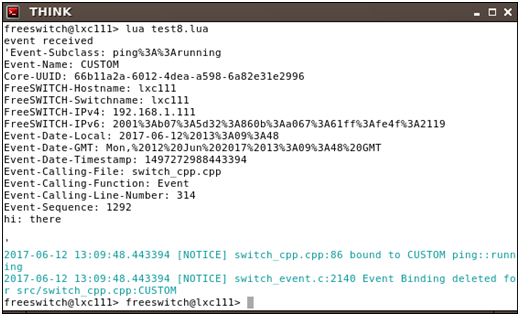

- #OPENCOMPUTERS LUA TXT WRITE HOW TO#
- #OPENCOMPUTERS LUA TXT WRITE MOD#
- #OPENCOMPUTERS LUA TXT WRITE MODS#
- #OPENCOMPUTERS LUA TXT WRITE CODE#
Moonalom / OpenComputers Public Notifications Fork Star main 1 branch 0 tags Go to file Code Moonalom Initial commit 1 ae4bdcc 17 minutes ago 1 commit README.md Initial commit 17 minutes ago README.md OpenComputers Lua Scripts for OpenComputers.
#OPENCOMPUTERS LUA TXT WRITE HOW TO#
See the page on component interaction to learn how to communicate with components from Lua. GitHub - Moonalom/OpenComputers: Lua Scripts for OpenComputers. You can program them to sort your inventory, go mining for your resources, have them build a fortress for you or make them sing and dance for your entertainment. whether a primary GPU and screen are present. term.isAvailable (): boolean Returns whether the term API is available for use, i.e. They can equip most tools, blocks or other items and can be programmed to use them in every way you want them to. Term API OpenComputers Term API Provides a simplified way of writing text to screens and reading user input, so you don't have to manually interact with the GPU API for these cases. Robots can interact with the world almost like a real player can do.
#OPENCOMPUTERS LUA TXT WRITE MODS#
Many special Blocks from other mods are already integrated into the Adapter, like Blocks from BuildCraft, IndustrialCraft2 or Thermal Expansion, other mods authors can use the Java API to add specific handling for their blocks as well. It is also possible to connect - or separate - components logically by using one of the various network cards or switches in both wired and/or wireless form.īlocks from Vanilla or other Mods can be connected via the Redstone Card, the Redstone I/O Block or an Adapter. Most of OpenComputers' blocks can “see” and interact with other OpenComputers Blocks automatically if placed right next to each other, or you can use Cables to connect them over a distance. Local end_at = computer.uptime() + (time or 0)Ĭomputer.pullSignal(end_at - computer.OpenComputers can connect to and interact with the outside Minecraft world through several methods:
#OPENCOMPUTERS LUA TXT WRITE MOD#
Im looking for software that will allow me to edit The OpenComputers variant of Lua, so that I may write programs for said mod without having to be in game. (passing true as the 2nd arguament tells component.list to only return exact matches)Īlso to pull signals (aka events) you have to use computer.pullSignal rather than event.pull and computer.pullSignal doesn't accept a filter, only a timeout so your main loop would probably look something like this: while true doĬertain functions from the os library also don't exist without OpenOS, one of the main ones is os.sleep which can be replaced with the following code if required function os.sleep(time) Im okay with using a plugin for Atom IDE or VSCode. There are a few conveniences you still do have like component.list returns a value that can be called to directly get the address of a componentįor example, to get the address of a redstone component local address = component.list("redstone", true)()

The component library isn't as quite as easy to use as it is in OpenOS though as you can't directly get components with component.redstone instead you have to call component.proxy or component.invoke with their addresses This forum post talks about programming the computer at its "lowest level" but as far as I can tell the Lua BIOS script isn't doing that (I certainly don't see any registers/flags or clock multipliers being set which is what I think of when I hear "lowest level").įrom an eeprom you have access to all of the lua apis (like math and coroutine) as well as computer and component At the end of the file, we need to return a table which will hold all the functions. Also look at VSCode extension, which integrates TypeScript with OpenComputers. Some examples can be found in the examples folder. It is assumed that you will use TypeScriptToLua as a transpiler. We can do this like you would do it in any other file, with local robot require robot. This repository contains type declarations for OpenOS and GUI (and also some of it dependencies). Gives me an error about requiring "component". So open a file called a and we can start First we need to require the robot api. However flashing an EEPROM with a very simple script require ("component").invoke(, start) Which seems to imply I do have some of the component methods (and that the white text on the wiki is the stuff that is included). Name variables for what they are, dont include type markers in them, i.e.

Do use brackets in functions calls even if its not necessary. There is this page that has a table but it's not clear to me what is and isn't included (is it the white methods that are present or the blue ones)? I looked at the Lua BIOS EEPROM and the first little bit is initĬomponent_invoke = component.invoke(args.) Dont add spaces between braces/brackets and whats in them. I understand I don't have most of the OS utilities but I'm confused as to what I do have. I'm having a bit of trouble getting an EEPROM programed for a microcontroller.


 0 kommentar(er)
0 kommentar(er)
